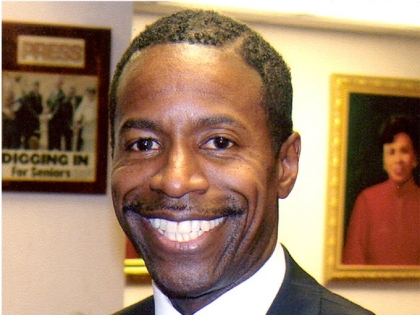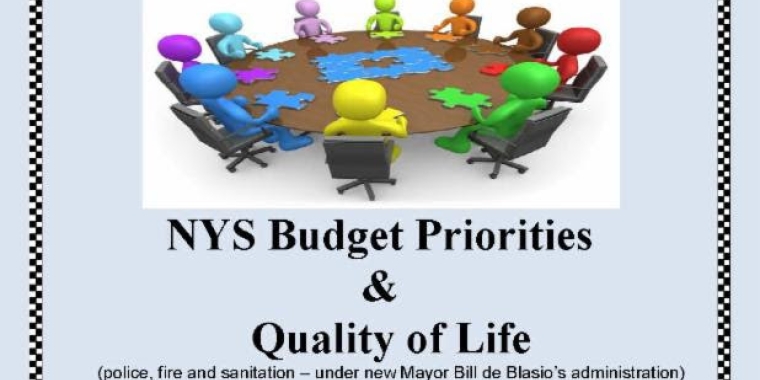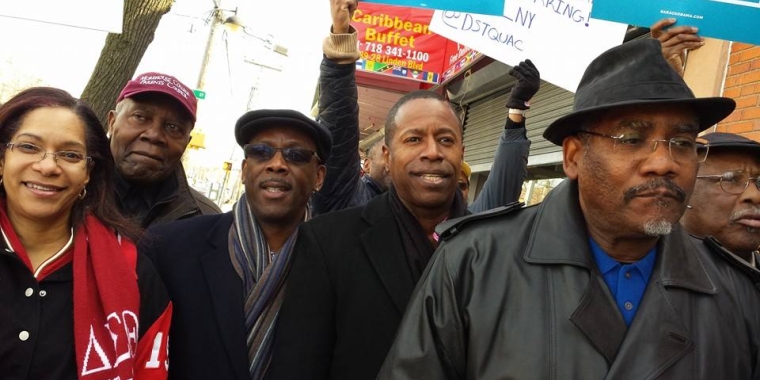
New Task Force To Review NYC School Governance Task Force Senate Democrats Say Parents May Need More Input In Local Classrooms
Malcolm A. Smith
July 7, 2008
ALBANY, NY –The Senate Democratic Conference has established the NYC School Governance Task Force to probe the effectiveness mayoral control has had on the New York City educational system.
The nine-member task force will hold its first hearing next month in Manhattan and will be co-chaired by Senators Martin Malave Dilan (D-Brooklyn), Shirley Huntley (D-Queens), and Martin Connor (D-Manhattan/Brooklyn).
"We are approaching these hearings with an open mind without prejudging the current system," said Senator Dilan. "However, we are concerned that parents of school children and the public have no meaningful way to influence the process. There is a framework in place that is working but I believe, and everyone I speak with agrees, any major bureaucratic system could always do better. I am confident this Task Force will be able to offer helpful suggestions about how this system could be improved."
Other Task Force members, include State Senators Toby Ann Stavisky (D-Queens), Kevin Parker (D-Brooklyn), Velmanette Montgomery (D-Brooklyn), Liz Krueger (D-Manhattan), Bill Perkins (D-Harlem) and Suzi Oppenheimer (D-Mamaroneck), ranking member of the Senate Education committee.
Education advocacy groups have argued that while the NYC Department of Education has undertaken a number parent outreach initiatives, the bottom line remains that the Mayor and Chancellor are free to reject or accept any input from any source.
"Virtually all authority has been consolidated in the Chancellor's office so the citizens have very little opportunity to get heard or provide input," said Senator Huntley. "The current governance system provides no legal or democratic avenue for parents to enact changes in district operations against the will of the Chancellor. The Chancellor is free to accept or reject any advice or requests made by parents."
Senator Suzi Oppenheimer (D-Mamaroneck), the Ranking Democrat on the Senate Education Committee said: "We hope the task force will help us come to an understanding of the issues that parents and the public have over mayoral control and to suggest ways to address the grievances."
In 2002 the Mayor of the City of New York was granted authority over the New York City school system by consolidating virtually all administrative and personnel powers in the office of the Schools Chancellor, who is solely accountable to the Mayor. The statute vesting the Mayor with the authority to select the Chancellor of schools and manage district operations expire on June 30, 2009. If the current law should sunset, the district's governance structure would essentially revert back to the previous system.
Prior to 2002, the school system was governed by a seven-member Board of Education which consisted of one appointee from each of the five borough presidents and two Mayoral appointees. The Board was responsible for hiring the Chancellor, establishing policies, and submitting budget requests and fiscal estimates to the Mayor. The method for selecting community superintendents required the community school boards to submit a list of recommended candidates from which the Chancellor would choose. Members of community school boards were elected.
The Chancellor currently has sweeping authority. The community education councils and the Panel for Education Policy are only responsible for policy issues, not administrative functions. The Citywide Panel for Education Policy is controlled by the Mayor as evidenced by the controversial policy change on social promotion. When members of the Policy Board indicated that they were going to vote against the Chancellor and maintain a social promotion policy, the Mayor simply replaced them before the vote with new members who agreed with his position.
Senate Democratic Leader Malcolm A. Smith (D-St. Albans) said: "As this law sunsets next year, it is time to review the changes made five years ago to the NYC School Board. The changes were dramatic at the time with the hopes of creating dramatic change in the educational system. I am looking forward to the report the nine-member Task Force will provide when these hearings are finished. The conclusions of the report could result in new legislation next year."
A series of six hearings will be held this summer in each of the five boroughs – two hearings are expected to be held in Manhattan.
Share this Article or Press Release
Newsroom
Go to Newsroom
Town Hall Meeting - Feb. 6
January 22, 2014

